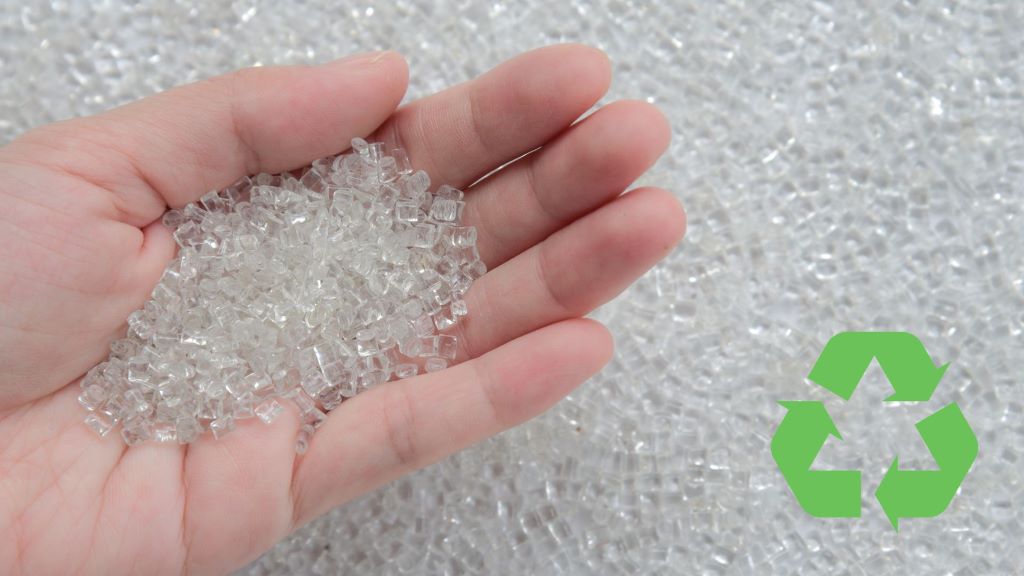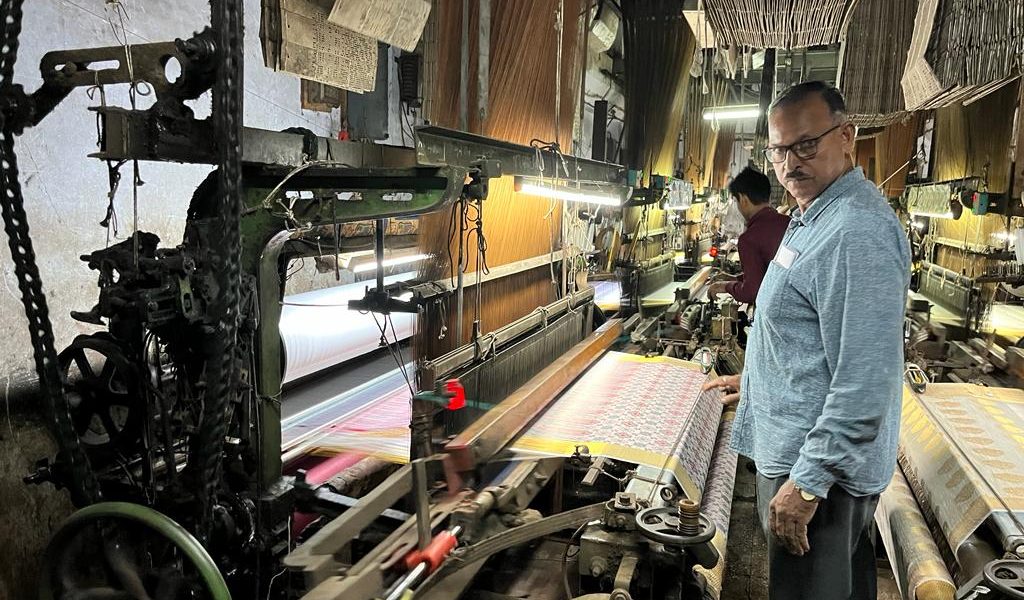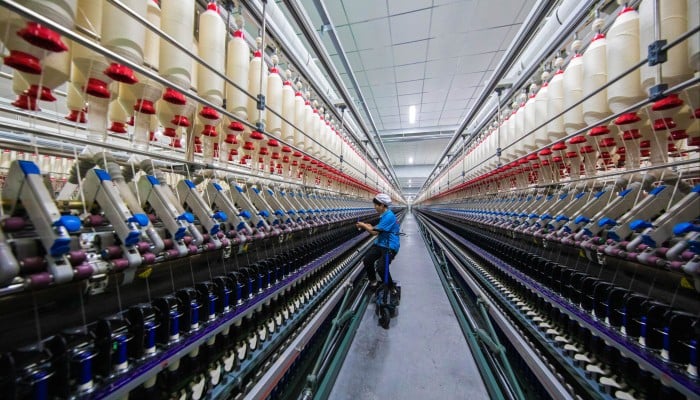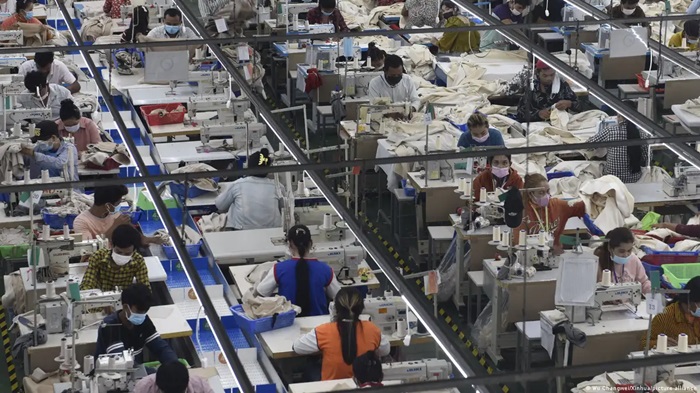FW

The fashion industry's long-standing reliance on recycled polyester from plastic bottles is facing scrutiny as its drawbacks become apparent. Initially celebrated as a sustainable solution, this approach is now being reassessed in favour of a more circular model.
Disrupting recycling loops
Brands like H&M, Patagonia, and Zara have championed recycled polyester from plastic bottles as a means to reduce reliance on virgin polyester and its high carbon footprint. However, this method disrupts existing bottle recycling loops, competing with closed-loop systems for beverage containers. Consequently, fewer bottles are recycled back into bottles, and the energy-intensive process of transforming bottles into polyester offsets some environmental benefits. Richard Wielechowski, Senior Investment Analyst, Planet Tracker points out, the biggest problem with bottles as a source for recycled polyester is that it takes bottles out of a circular loop in plastic packaging.
Landfill concerns
Despite its eco-friendly intentions, clothing made from recycled polyester often ends up in landfills, contributing to microplastic pollution and methane emissions. Synthetic fabrics, including recycled polyester, shed microplastics during washing, exacerbating plastic pollution in oceans and waterways.
Data points
• Synthetic fabrics like polyester account for 54 per cent of global fiber production, surpassing cotton.
• Only 1 per cent of clothing gets recycled.
• Unifi, a major recycled polyester producer, aims to convert the equivalent of 1.5 billion old T-shirts into new polyester yarn by 2030.
Embracing textile-to-textile recycling
Recognizing the limitations of bottle-to-clothes recycling, the fashion industry is turning towards textile-to-textile recycling as a more sustainable alternative. H&M's $600 million investment in Syre, a startup pioneering textile-to-textile recycling, signals a significant shift in strategy. Syre aims to establish large-scale plants capable of processing vast quantities of used clothing, thereby closing the loop on textile waste.
Meanwhile leading brands like Zara from Inditex and Puma are also embracing textile-to-textile recycling, partnering with companies like Ambercycle. This collaborative approach marks a departure from bottle-based recycled polyester production.
Overcoming challenges
Despite the promise of textile-to-textile recycling, challenges persist, particularly regarding microplastic pollution. Scalability is also an issue as the current infrastructure needs significant expansion to handle the industry's massive waste stream.
However, efforts to minimize fiber release during washing and develop filtration systems for washing machines are underway to address the issue of microplastics. The establishment of large-scale textile recycling infrastructure remains in its early stages, highlighting the need for industry-wide collaboration to ensure sufficient capacity.
The broader impact
The transition to textile-to-textile recycling will significantly enhance the fashion industry's sustainability efforts by reducing reliance on virgin polyester and minimizing landfill waste.
Increasing consumer demand for sustainable practices, coupled with government regulations like the EU's Extended Producer Responsibility (EPR), are driving this shift. Brands face mounting pressure to adopt sustainable solutions, making textile-to-textile recycling an attractive option.
A new narrative for sustainable fashion
While recycled polyester from bottles played a role in raising awareness about sustainability, the fashion industry is now embracing a more circular approach centered on textile-to-textile recycling. This shift, combined with efforts to address microplastic pollution, heralds a brighter future for sustainable fashion.
Blending vintage nostalgia with modern innovation, Orta’s AW 25/26 collection pays homage to the timeless allure of denim.
Divided into two distinct lines, Memory Lane and Retro Flex, Orta's latest collections reimagine classic denim styles infused with contemporary stretch and eco-friendly performance. The Memory Lane range celebrates the transformative decades of the '50s, '70s, and '80s, where denim served as a symbol of liberation and individuality.
Blending retro aesthetics with modern sensibilities, the Memory Lane collection channels themes of sustainability and inclusive fashion. The 80s Campus line, featuring heritage stripe textures and luxurious materials like wool denim and cashmere sateen, offers a nostalgic reinterpretation of Ivy League elegance fused with contemporary refinement. It embodies a lifestyle of understated luxury, emphasising durable denim that transcends fleeting trends.
The Memory Lane range also introduces a new, long-lasting black denim engineered for exceptional laser performance and rapid fade, echoing the rebellious ethos of tattoo and biker subcultures.
Meanwhile, Retro Flex range celebrates the vibrant energy of bygone eras, from the carefree '50s to the soulful '70s, infusing vintage charm with modern comfort and versatility. The collection exudes a sense of liveliness and audacity, with boldly flared silhouettes and eclectic styles that resonate with the enduring spirit of the '70s Hippie Heart.
In a world filled with uncertainty, consumers seek solidarity and self-expression through fashion, gravitating towards eclectic and vibrant styles that echo the rebellious spirit of past generations. The Glory Days 50s denim line pays homage to the rugged individualism of rodeo rebel cowboycore, combining vintage stretch with authentic character and hints of glamor for an effortlessly stylish look. Oktay Okurglu,Director - Sales & Marketing and Product Development, Orta, emphasises the universal appeal of rebellion and self-expression inherent in denim.
He says, by pushing the boundaries of modern vintage, Orta aims to create enduring denim memories that reflect the spirit of today's self-expressive, creative individuals.
A prominent player in the Indian textiles industry, Welspun Living reported a 16 per cent rise in consolidated net profit to Rs 146 crore in the fourth quarter ended March 31. This company also recorded a 19 per cent increase in revenue, reaching Rs 2,617 crore for the quarter.
For the entire FY 2024, Welspun Living's total income increased to Rs 9,825 crore with net profit rising to Rs 681 crore. Dipali Goenka, Managing Director and CEO, Welspun Living emphasises on the company's sustainable growth as EBITDA increased by 73 per cent to reach 15.4 per cent during FY24.
Despite challenges in the retail market, Welspun Living's domestic retail segment demonstrated resilience throughout the year. The company's flagship brand, 'Welspun,' expanded its presence to over 600 towns and 20,000-plus stores. This expansion contributed to the brand's highest-ever revenues in FY24.
A specialist in home textiles, Welspun Living offers a diverse range of products such as bed sheets, bath linen, and curtains under its private labels. With its robust performance and strategic growth initiatives, the company maintains a strong foothold in the home textiles segment.
Renowned for its edgy and unique fashion, AllSaints has recently joined the ranks of premium brands at the Silverburn Shopping Centre in Glasglow. Alongside names like Flannels, Rituals, and The White Company, this addition played a significant role in driving Silverburn’s footfall to over 15 million for the first time last year, underscoring the appeal of its offerings.
Visitors to Silverburn can now anticipate finding AllSaints’ signature style staples, ranging from leather jackets, jeans, and hoodies to patterned dresses and classic white t-shirts, along with a selection of accessories.
Frankie Mallinson, Retail Director, AllSaints, states, the latest store at Silverburn will unveil the brand’s ‘Access all Areas’ collection for 2024. The brand has also retained its core collection featuring iconic leathers and bold dresses.
David Pierotti, General Manager, Silverburn, affirms the retailer’s commitment to delivering a top-tier retail and leisure experience for all guests. He comments, attracting renowned brand names like AllSaints enables Silverburn to provide an exceptional shopping and entertainment environment.
The 16th edition of the Bangladesh Denim Expo aims to redefine the essence of denim by embracing new technologies and forward-thinking approaches.
To be based on the theme ‘Reimagine,’ the event, from May 06-07, 2024 in Dhaka, the expo will showcase the latest innovations and trends in the denim industry.
According to Mostafiz Uddin, Founder and CEO, Bangladesh Apparel Exchange (BAE), signifying a departure from conventional norms, the theme, ‘Reimagine’ explores new territories to create a visionary and transformative denim experience.
The expo aims to revolutionise every aspect of the denim production from sustainable practices to cutting-edge design techniques.
With over 60 exhibitors from 11 countries including Bangladesh, India, China, Pakistan, Turkey, Italy, France, Spain, Switzerland, Vietnam, and Japan, the event promises a diverse array of participants representing various segments of the denim industry. These include fabric mills (both denim and non-denim), garment manufacturers, washing laundries, accessories and trims suppliers, chemical companies, machinery and technology providers, as well as logistics firms.
Among the participants are notable names such as Archroma Management LLC, Artistic Milliners, Bluesign Technologies AG, Denim Solutions, etc, showcasing their latest products, innovations, and sustainable practices.
Serving as a platform for industry stakeholders to shape the future of denim, the Denim Expo continues to be a driving force in reshaping the global denim landscape.
The Board of Directors of Salvatore Ferragamo SpA, the parent company of the Salvatore Ferragamo Group, convened under the leadership of Leonardo Ferragamo, Chairman, reaffirmed the appointment of Marco Gobbetti as the Chief Executive Officer of the Company.
Gobbetti's tenure will extend throughout the current term of the Board of Directors, concluding with the Shareholders' Meeting slated to approve the financial statements for the year ending December 31, 2026. Additionally, the Board granted Gobbetti powers consistent with those he previously held, including his role as General Manager of the Company.
Furthermore, maintaining continuity with their previous mandates, the Board authorised proxies to Leonardo Ferragamo Chairman and Angelica Visconti, Vice-Chairman Angelica Visconti. The Board's forthcoming meeting on May 9, 2024, will entail a review of the independence criteria outlined in the Consolidated Law on Finance and the Corporate Governance Code of Borsa Italiana S.p.A. Directors who declared their independence upon candidacy will undergo assessment, alongside the reconstitution of Committees stipulated by the Corporate Governance Code.
During the same session, subject to the favorable opinion of the Board of Statutory Auditors, Pierre La Tour, Group Chief Financial Officer, was appointed as the Manager responsible for preparing financial reports as per Article 154-bis of Legislative Decree No. 58 of February 24, 1998 ("TUF"). His appointment is effective April 24, 2024, and will last until the conclusion of the current Board's term.
Once adorned with flourishing cotton and silk mills, Tumkur in Karnataka is grappling with the gradual decline in its textile industry.
The textiles sector in Tumkur currently faces a multitude of challenges including labor shortages, dwindling exports, and bureaucratic red tape. In dire need of revitalisation, the industry in the Karnataka town is grappling with slow subsidies and pending approvals that continue to stunt growth and progress. Entrepreneurs in the town are clamoring for policy reforms as they strive to navigate through the adversity.
Hafeezur Rahman, Techmax Structurals, laments, the sector is impacted by labor shortages and escalating export rates. These challenges are further exacerbated by the allure of cheaper labor in countries like Bangladesh and China. Revitalisation of the sector is paramount to address the employment crisis and boost foreign exchanges in the town, asserts Rahman. He urges the government to strengthen the micro, small, and medium enterprises (MSMEs) in the town to drive its economic growth.
Rahman opines, mere financial allocations from the government won't suffice. Rather, the state needs to introduce initiatives that aid enhance quality, modernisation, and workforce training within the industry. A dedicated special economic zone (SEZ) needs to be established to spur the sector’s growth, he adds.
Ronald, Business Head, MAF Clothing, underscores the challenges posed by water and land scarcity, which hamper crucial operations within the industry. He urges the government to offer robust wage incentives at the national level to attract and retain skilled laborers.
Prabhu SR, a Tumkur-based industry consultant, emphasises on the urgent need for policy implementation and timely disbursement of loans to rural businesses. Anchored by 18 firms, Tumkur's textile landscape with giants like Shahi Exports and MAF Clothing leading the charge, collectively employs thousands of laborers who shape the city's economic narrative.
Against this backdrop, Karnataka's new textiles and garment policy seeks to reposition the state as a premier destination for textiles and apparel in the country. With ambitious goals of stimulating the industry and creating half a million jobs within five years through investments worth Rs 10,000 crore, the policy signals a ray of hope for Tumkur's beleaguered textile sector.
In Q1 FY24, the net revenues of Prada SpA by 16 per cent at constant exchange rates to €1.19 billion ($1.27 billion) as against the analysts’ expectations of €1.17 billion jumped as the Italian fashion group, which also owns Miu Miu continues to outperform its biggest rivals.
The brand’s performance was particularly strong in Asia Pacific, including China, which a year ago was reopening after the strict lockdowns of 2022. Appreciating the brand’s performance Patrizio Bertelli, Chairman, says, the brand performed exceptionallywell even amidst a challenging market environment.
During the quarter, the Lyst index ranked Miu Miu and Prada amongst the hottest brands in the world. In particular, the analyst Lyst pointed to a popular sneaker collaboration between Miu Miu and New Balance.
The strong performance of Prada stands in sharp constrasts to the weak results of its French rival Kering, whose biggest brand Gucci is facing a tough turnaround as it seeks to reposition itself in a more exclusive segment.
Miuccia Prada, the granddaughter of the group’s founder, is creative director at Miu Miu and splits those duties at Prada with Raf Simons.
Surpassing analysts’ expectations, demand for luxury products by Hermes increased by 17 per cent at constant exchange rates to €3.8 billion ($4.1 billion) during Q1FY24.
Revenues of the brand in key Asia markets excluding Japan rose by 14 per cent to €1.92 billion during the quarter. Additionally, its leather goods and saddlery division outperformed estimates with robust 20 per cent growth.
Known for its appeal to the most affluent clientele, Hermes has weathered the challenges facing the luxury market with notable success. This stands in contrast to the struggles of Kering SA, particularly in its efforts to revitalise its flagship brand, Gucci, a process that is proving to be time-consuming.
Although Hermes noted a decline in foot traffic in Greater China, particularly in March, following the Chinese New Year, purchases of higher-end leather, ready-to-wear, and jewelry items increased during the period. Eric Du Halgouet, Chief Financial Officer explains, number of customers opting for more affordable products like silk scarves declined slightly during this period. However, there was a notable uptick in those splurging on luxury goods.
Hermes' perfume and beauty, as well as silk divisions grew by 4.3 per cent and 7.9 per cent, respectively, throughout the quarter.
Renowned for its high-quality sewing and embroidery threads, German-based company Amann has inaugurated its maiden production plant in India. Located in Ranipet, Tamil Nadu, this facility marks a significant milestone for the company as it expands its footprint into the Indian market, catering primarily to the leather and apparel industries.
Equipped with a state-of-art technology, the plant is Amann’s most sustainable production site till date, says Peter Morgalla, Chairman. Spanning across 32,000 sq m, the plant aims to create employment opportunities for 200 individuals.
Notably, Amann has installed a Zero Liquid Discharge unit at the plant to ensure minimal water wastage and prioritise environmental sustainability. The plant relies on renewable energy sources, with a substantial portion of its energy needs met through photovoltaic systems and nearby wind and solar parks. Biomass fuels the boiler required for steam production, essential for the dyeing process of threads, further underscoring the company's commitment to eco-friendly practices.
The plant offers efficient delivery options and reduced lead times across Asia. Additionally, the company commits to providing technical advisory services to empower customers to maximise the potential of its products.
Sanjeev Grewal, Managing Director, Amann, attributes the company’s success to longstanding partnerships with both global brands and Indian clientele. Established in 2007, Amann has sales offices in Chennai, Bengaluru and Gurgaon. The company remains dedicated to maintaining its position as a leader in quality and innovation within the Indian sewing thread industry.












